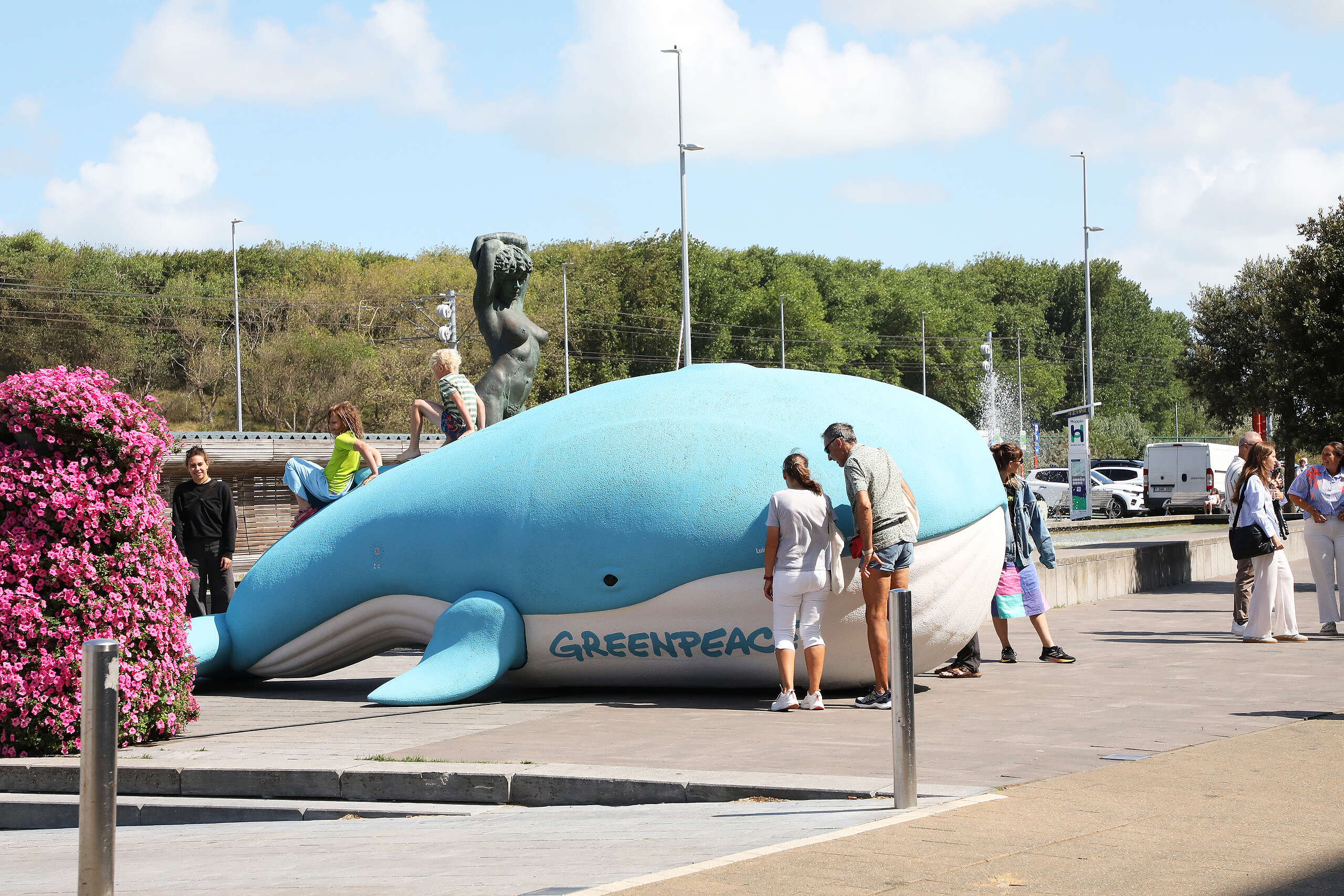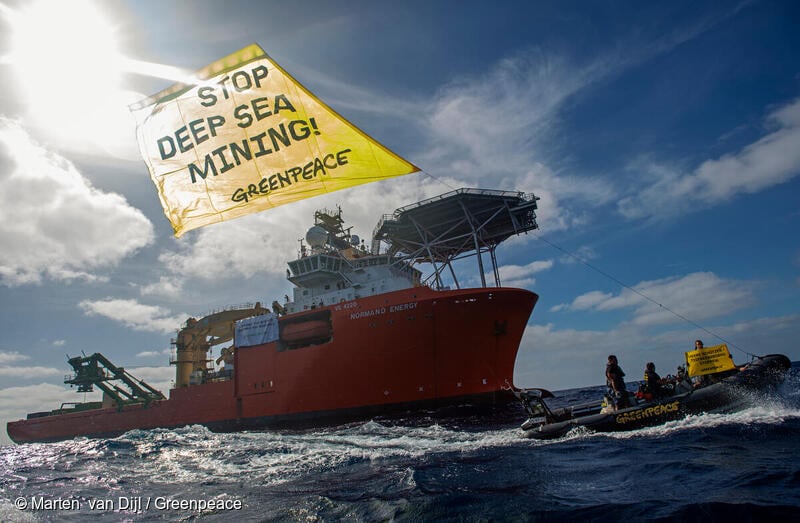Zonet is in Jamaica de Council van de ISA (Internationale Zeebodemauthoriteit) afgelopen. Hieronder vindt u de persreactie van Greenpeace International. Samenvattend zijn dit voor ons de belangrijkste punten:
- De aanname van de mijnbouwcode is nog niet in zicht. De raad van de ISA heeft een tweede lezing van de mijnbouwcode afgerond. Hierin kwamen voornamelijk verdere onenigheden tussen staten aan het licht en werd nog geen consensus gevonden. Enkele kritische mechanismen binnen de wettekst evenals de annexen, standaarden en richtlijnen werden nog niet besproken. Ook tijdens de discussie omtrent de volgende stappen konden staten geen overeenstemming vinden.
- Er was een lang debat en uiteindelijk besluit om het exploratiecontract van The Metals Company te onderzoeken, in het licht van hun aanvraag voor diepzeemijnbouw onder Amerikaanse vlag, wat indruist tegen het multilaterale kader en de Internationale Zeebodemautoriteit (ISA). Dit is belangrijk omdat het contract volgend jaar afloopt, en ze een verlenging hebben aangevraagd. Ze riskeren hun concessie in de Clarion-Clipperton Zone (CCZ) te verliezen onder de ISA. België was een voortrekker in deze beslissing.
België zat vooraan in de onderhandelingen als lid van de Raad van de ISA dit jaar. Vanuit die positie drong België aan op een kritische reflectie omtrent de aanvraag van The Metals Company om haar exploratiecontract bij de ISA te verlengen, terwijl dat bedrijf ondertussen een exploitatie-aanvraag heeft ingediend in de Verenigde Staten. Omtrent de bescherming van de oceaan kwam België echter zelden tussen.
Ruth-Marie Henckes, campagnevoerder oceaan bij Greenpeace België, volgt de ISA-onderhandelingen in Jamaica: “We zijn tevreden dat België een signaal stuurde dat het ondergraven van multilateralisme – wat de VS en TMC doen – niet zonder gevolg gaat. Maar we hadden meer verwacht van ons land op vlak van milieubescherming, als zogenaamde ‘blue leader’ en kandidaat om het secretariaat voor het VN Oceaanverdrag te huisvesten. België lijkt overhaast een mijnbouwcode te willen aannemen terwijl er nog fundamentele kwesties in de wetgeving onopgelost zijn.”
Press Release Greenpeace International
ISA Council ends: No green-light for deep sea mining and rogue companies face consequences
The ISA (International Seabed Authority) Council meeting started with governments under heavy pressure from industry to finish negotiations and deliver a Mining Code to deep sea mining corporations. But with public concern over ocean health loud and clear, the Council has ended with a clear signal that this industry will not get international approval anytime soon.
New efforts to fast-track a Mining Code have only highlighted the many unresolved issues that governments must confront before any deep sea mining is even considered.
The international community also decided to take action to show that rogue deep sea mining companies attempting to bypass international law will face consequences. In the first meeting of the ISA since The Metals Company (TMC) submitted the world’s first-ever application to commercially mine the international seabed, governments responded by launching an investigation into whether mining contractors, including TMC’s subsidiaries Nauru Ocean Resources Inc. (NORI) and Tonga Offshore Mining Limited (TOML), are complying with contractual obligations to act in accordance with the international legal framework.
Multiple legal analyses — including a detailed opinion commissioned by Greenpeace International — have concluded that TMC’s move to mine unilaterally via the US constitutes a breach of international law. Crucially, the ISA and States parties to UNCLOS have legal obligations to take action against any unilateral attempts to extract resources in the international seabed outside of the UN framework. [1]
This raises serious concerns about the company’s approach and the broader risks of allowing deep sea mining to start without global consensus and outstanding scientific questions.
Greenpeace International campaigner Louisa Casson, who is attending the meeting, said:
“Despite industry pressure reaching fever pitch, governments have sent a clear signal that the deep sea mining industry will not get international approval any time soon.
“The international community has sent a signal: rogue companies attempting to bypass international law will face consequences. This latest move further shatters The Metals Company’s credibility and serves as a stark warning to others considering this reckless path.
“Governments have also reaffirmed that there should be no deep sea mining in the global oceans while major political and scientific questions remain unresolved.
“As more delegations arrive today to attend the ISA Assembly meeting, they’ll be met by a rising tide of voices — from scientists, Pacific communities, businesses, and concerned citizens — all saying the same thing: deep sea mining is a dangerous gamble we cannot afford, and the only responsible way forward is a global moratorium.”
Note:
[1] From Prof. dr. Seline Trevisanut’s legal opinion: The obligations extend to states and natural or juridical persons having the nationality of a state party (Arts 137.3 and 139.1). This means that UNCLOS parties shall not engage with any illegal activity performed on the basis of licences granted pursuant to the Executive Order, and that they shall preventtheir nationals from participating in the said activities.
Contact
Greenpeace persdienst:0496 26 31 91 – [email protected]
Ruth-Marie Henckes volgt de ISA-meeting ter plaatse in Jamaica. Interviews met haar zijn mogelijk.



